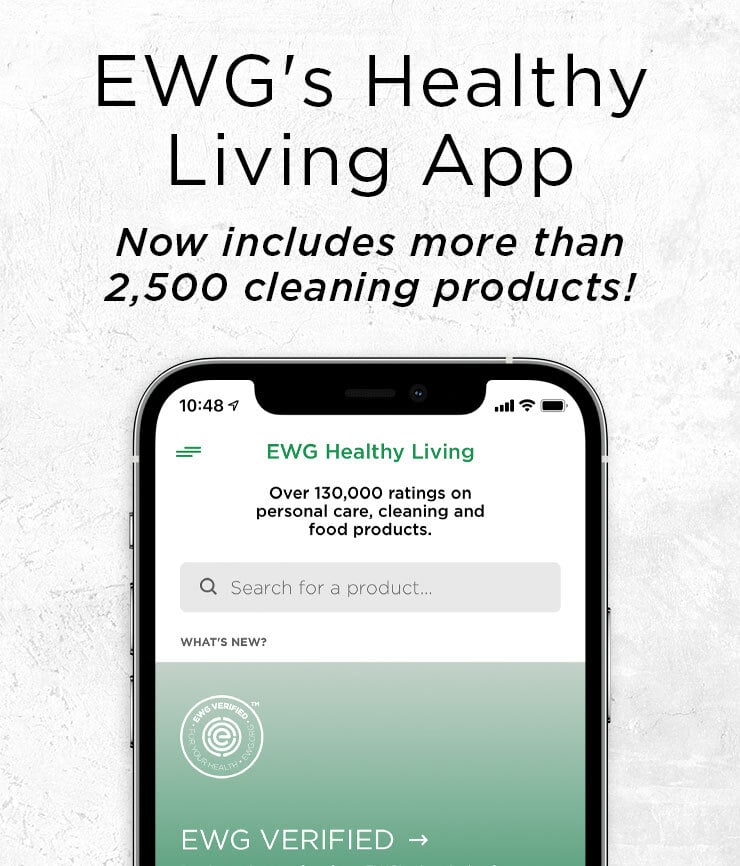Neonic pesticides: Banned in Europe but common on U.S. produce, lethal to bees
By Olga V. Naidenko, Ph.D., VP, Science Investigations and Alexis M. Temkin, Ph.D., Toxicologist
THURSDAY, APRIL 7, 2022
More than 15 percent of U.S. non-organic fruits and vegetables have detectable residues of at least one of three neonicotinoid insecticides banned by the European Union in 2018 because of their harm to pollinators. For some produce – spinach, potatoes, lettuce and eggplant – more than half the samples tested have detectable residues.
Neonicotinoids, or “neonics,” have also been detected in the urine of 50 percent of kids ages 3 to 5 in a U.S. sample, and their diet may be a primary route of exposure. At least one in four samples of some of the fruits and vegetables most commonly eaten by American children and adults, like cherries, strawberries and watermelon, have residues of neonicotinoids that are prohibited for outdoor use in the European Union: imidacloprid, clothianidin and thiamethoxam.
The use of neonics in the U.S. expanded dramatically over the past two decades as they became a mainstay of non-organic, or conventional, agriculture. In contrast, in 2018 the EU issued a ban on the outdoor use of bee-killing neonicotinoids. Neonics are used as a seed-coating treatment for corn and soybeans and are also sprayed on many fruits and vegetables during the growing season, endangering bees and other pollinators.
An EWG analysis of the latest Department of Agriculture tests shows that residues of at least one of three EU-banned neonicotinoid pesticides was also found on more than 40 percent of cauliflower, winter squash, and broccoli and nearly one-third of cherry tomatoes and fresh cherries. Sweet corn, mushrooms, kiwis, avocados, bananas, frozen sweet peas and sweet potatoes contained no detectable neonics.
Table 1: U.S. produce with residues of neonic pesticides banned in Europee
| Fruit or vegetable | Percent of samples with residues of neonic insecticides |
|---|---|
| Spinach | 61% |
| Potatoes | 58% |
| Lettuces | 54% |
| Eggplant | 51% |
| Cauliflower | 49% |
| Winter squash | 46% |
| Tomatoes | 29% |
| Cherry tomatoes | 32% |
| Cherries (fresh) | 31% |
EWG analyzed the prevalence of three neonicotinoid insecticides, which are now banned in Europe, on U.S. non-organic produce. The insecticides are imidacloprid, clothianidin and thiamethoxam. Data for all are from the same year of USDA tests used for the Shopper’s Guide to Pesticide in Produce methodology.
A fourth neonic, acetamiprid, is also widely detected on conventional U.S. produce, especially in the fruits kids like to eat. It was detected on about one in three strawberry and apple samples and nearly a quarter of cherry samples tested by the USDA. Acetamiprid is the most frequently detected neonic in U.S. children. Although acetamidiprid is still approved for use in the EU, scientific evidence based on studies in laboratory animals is mounting that it may also be harmful to bees and possibly humans,.
EWG’s analysis also showed that with imidacloprid, clothianidin, thiamethoxam and acetamiprid, multiple neonics are often used on the same crop. Thirty percent of spinach, 20 percent of eggplant and 12 percent of bell and hot peppers contained at least two neonics, and some samples contained three or four. Fruits and vegetables with the highest average concentrations of imidacloprid and acetamiprid were grapes, cherries, kale, collards and mustard greens, spinach and strawberries.
Less common on U.S. fruits and vegetables are two other neonics, thiacloprid and dinotefuran, which are also not approved for use in the EU. Thiacloprid was banned due to its classification as toxic to reproduction and its ability to contaminate drinking water sources. Its use in the U.S. has been declining since 2016. Thiacloprid was found on five percent or more of apples, bell and hot peppers, and pears.
Use of dinotefuran has also been declining, but it can be detected on 12, 15 and 16 percent of eggplant, tomatoes and cantaloupe samples, respectively.
Growing evidence neonics may harm children’s health
Some studies of human health suggest exposure to neonics may be harmful to children and the developing fetus, and biomonitoring studies show that exposure in children and pregnant women around the world is widespread.
In 2017, researchers from George Washington University and the National Institute of Environmental Health Sciences reported that in some human epidemiological studies, exposure to neonics has been linked to increased risk of harm to the developing fetus, as well as higher risk of autism spectrum disorders and memory loss. Most insecticides harm the nervous system, so minimizing use of and exposure to insecticides is important.
In 2020, the National Toxicology Program published a review of toxicity associated with neonics, reporting that neurotoxicty was the most studied outcome, with several more studies on developmental effects. Since 2020, other animal studies show neonics may also harm the male and female reproductive systems, as well as affectingmemory and behavior.
Neonics and pollinators
The growing use of neonics is a serious concern because healthy bees and other insects are necessary for pollinating many crops. In the largest field study of the effects largest field study of the effects of neonicotinoids on honeybees and wild bees, European scientists reported that they harm bee colonies – especially when bees have nothing to feed on other than crops treated with synthetic pesticides.
In the fall of 2021, the U.S. Fish and Wildlife Service initiated a review following a petition to add the American bumble bee to the list of endangered and threatened wildlife. In worldwide tests of honey samples, neonics were found in three-fourths of samples, underscoring the threat these insecticides pose to bee colonies.
To protect bees and other pollinators, in 2013 the EU enacted a moratorium on neonicotinoid use on several crops, followed by a decision to adopt a complete ban. The ban on neonic use took effect at the end of 2018, though several EU member countries have been granted “emergency” exemptions, and recently the UK allowed use of neonics on sugarbeets.
Neonic regulation in the U.S.
Although the Environmental Protection Agency continues to allow the outdoor use of these insecticides, some states are taking action to limit their use in an effort to protect pollinators.
Most recently, California’s Department of Pesticide Regulation has proposed limiting outdoor uses of imidacloprid, clothianidin, dinotefuran and thiomethoxam on crops that are attractive to bees. And a bill was just introduced in California that would ban the non-agricultural uses of all neonics, including aetamiprid. Several other states already have similar laws in place, including Maine, New Jersey and others.
But overall the U.S. has lagged far behind in taking action on neonics, despite the fact that bee colony collapse caused severe economic losses for American beekeepers. Bees and other pollinators are also essential for U.S. farmers that grow squash, melon, cantaloupe, apples, almonds and many other crops that need pollination to bear fruit.
Other studies show the extensive use of neonics may not be necessary. A study published in 2021 in the prestigious journal PNAS found that integrative pest management techniques – such as combining corn and watermelon crops – reduced the use of imidacloprid by 95 percent while maintaining yields of corn and increasing watermelon yields because of the increased attraction of wild bees.
EWG and more than 120,000 of our supporters have written to the EPA urging it to ban all unnecessary uses of neonicotinoid insecticides in the U.S.
To protect bees – and the health of children and all Americans – farmers must shift from intensive use of chemical pesticides to safer, non-chemical pest management methods. Families who want to protect themselves now from pesticide exposure should choose organic produce or produce with fewer pesticide residues, whenever possible.
For more information about how to avoid pesticides on food, visit EWG’s Shopper's Guide to Pesticides in Produce™.
As more Americans make these choices, food producers and retailers are responding. According to GreenBiz, an online media company, several retailers, including Costco, Walmart, Aldi, Kroger, Giant Eagle and BJ’s Wholesale Club have taken steps to limit or stop selling garden products with neonicotinoids. Walmart and Costco also encourage suppliers of non-organic produce to phase out the use of neonicotinoids.
Other EWG Resources

EWG's Tap Water Database

Children's Health Initiative

EWG's Healthy Living App

Guide to Healthy Cleaning

EWG's Food Scores

EWG's Skin Deep

Safe Cell Phone Use



 Skin Deep
Skin Deep
 Cancer Prevention Within Reach
Cancer Prevention Within Reach
 Shopper's Guide to Pesticides in Produce™
Shopper's Guide to Pesticides in Produce™
 Guide to Healthy Cleaning
Guide to Healthy Cleaning
 EWG's Tap Water Database
EWG's Tap Water Database
 Food Scores
Food Scores
